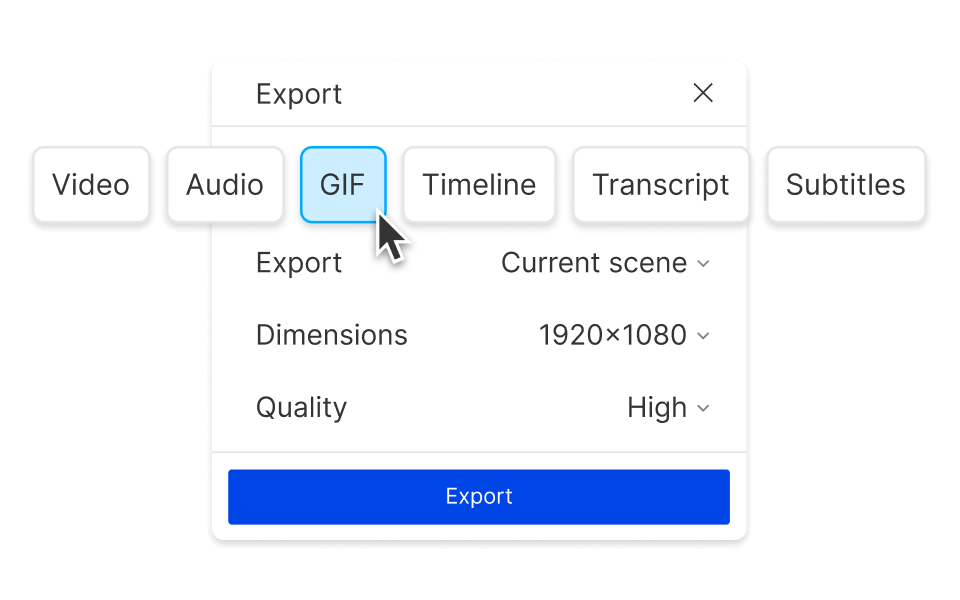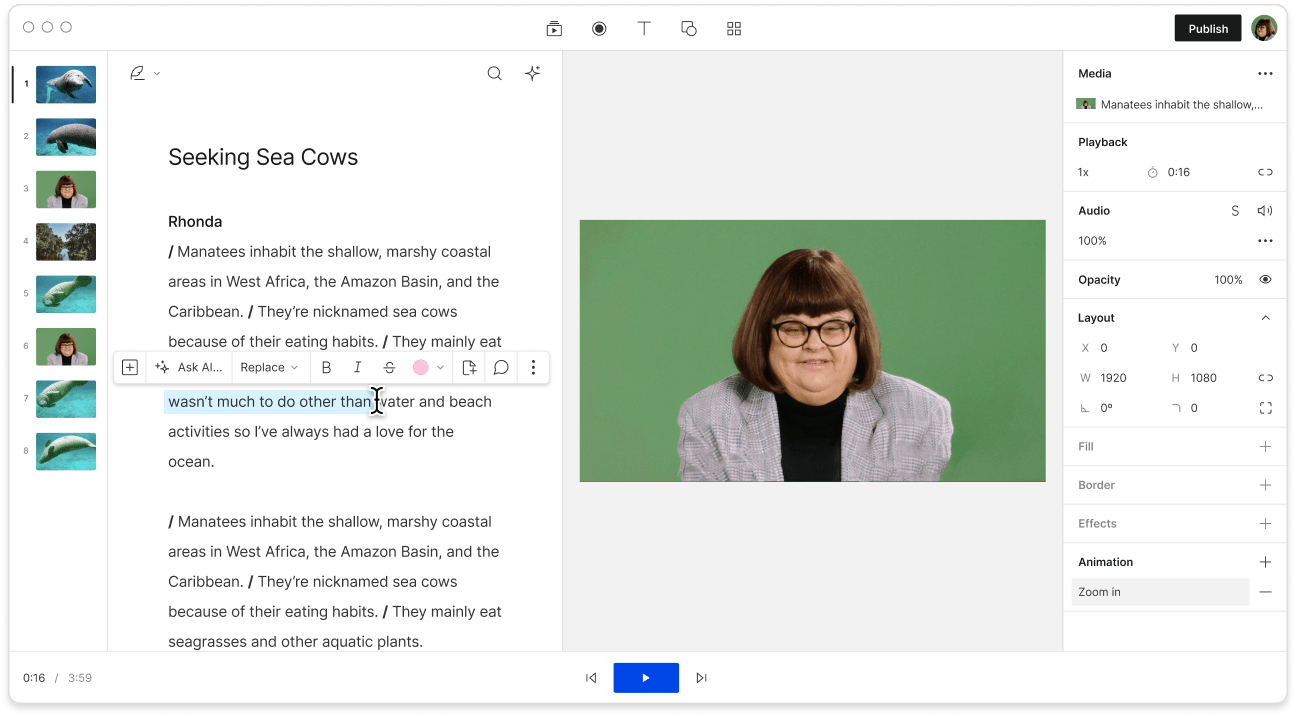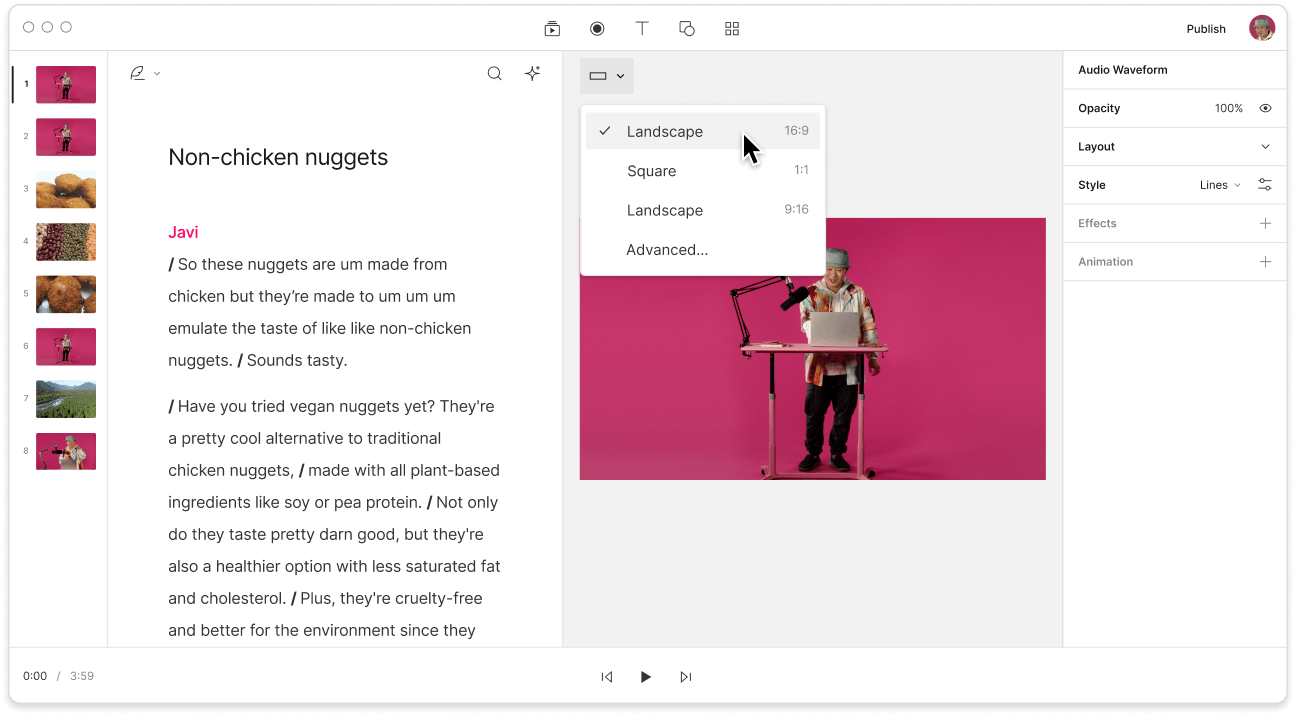Convert Your M4A to FLAC
Descript is a powerful tool that effortlessly converts M4A files to FLAC, ensuring high-quality audio preservation. Perfect for audiophiles and professionals, it simplifies the conversion process with just a few clicks, maintaining the integrity of your sound files.
Get started




























